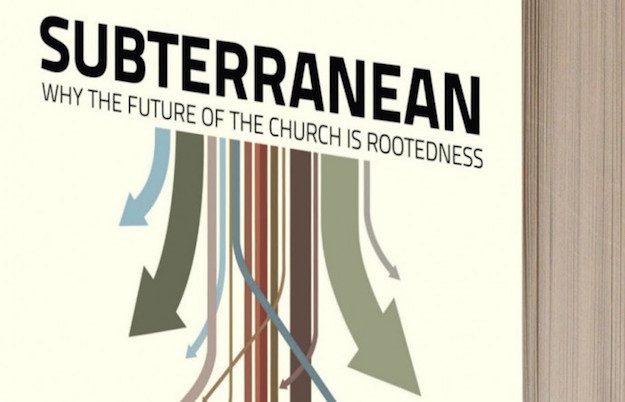Growing up, I was taught to believe – firmly, absolutely – that the Bible is God’s truth.
While my Charismatic family didn’t quite put it in these words, what they meant was that the Bible is inerrant. Without error in the original autographs. Verbally and plenarily inspired such that every word of it is, in fact, the Word of God. This, after all, is the conservative evangelical bedrock, and my family were conservative evangelicals (even though they spiced it up with Jesus-Movement, Charismatic flare).
In Bible college, I indeed put those necessary theological terms to what I’d been taught to believe, and I was ready to defend it to the death. My newfound Calvinism gave me even more certainty about the precise system of information that the Bible was communicating, true and rational to the very last word. Well, there were lots of words I didn’t account for, honestly, but I subsumed them under words like “sovereignty,” “substitutionary atonement,” “divine election,” “eternal conscious torment,” etc., which made it all much easier to digest – and be absolutely certain about.
And I was certain, absolutely. Because the Bible is God’s truth. And it’s inerrant.
Right?
But then I started experiencing more of life, including some of its harsher realities. I began coming to terms with human brokenness and pain, in myself and others, and it was not so easy to be absolutely certain. In fact, the Bible began to look a lot messier – like life. Some of it seemed beautiful and true; some of it was bizarre and barbaric. Suddenly the sanctioned violence of the Old Testament seemed insane, an eternal hell seemed unjust (even irrational), and the bifurcating of the human race into elect and nonelect seemed utterly dehumanizing. Historical and scientific inaccuracies in the text were obvious, and the typical conservative appeal to “the original autographs” was a lame copout. The literalism that called for seven-day, young-earth creation – which is the only possible perspective consistent with inerrancy – was at least unlikely, at worst impossible.
Now, it’s true that the conservative evangelical response to my story would quite simply be that I began to lose faith, had a crisis of faith, or let my “feelings” get the best of me and take me away from the objective truth. But I never lost faith. My trust in Jesus, I daresay, my orthodox trust in Jesus, never failed. The point is, I have remained confidently Christian throughout my journey, because I have remained confident about Christ.
For me, the first big step away from inerrancy was accepting an incarnational view of scripture. That is, the Bible is not a collection of inerrant facts about God which one must attempt to master and defend. Instead, it’s an incarnational text, a narrative where the truth is embodied in a people that God is working with and through in a particular time and place. The Incarnate One is at the center of the narrative itself, the Word Made Flesh giving us the truth in a person, par excellence. Everything revolves around him. And the church continues to embody the truth of the Word, as God works in and through us as the Body of Christ.
But it occurred to me today that I have recently been looking at the Bible in a slightly new way, one that builds on this incarnational step.
Namely, I’ve been seeing the Bible as an eschatalogical text.
The Bible, the sacred text of the church of Jesus, is true, and is even authoritative for the people of God, but only in the sense that it bears witness to the eschatalogical event of the Messiah – his life, death, resurrection, and ascension – and throws the door wide open for an ongoing, unfolding realization of this event. What I mean is, even beyond being an incarnational narrative, the scriptures are witnessing to the defining moment in history that sets a trajectory for an eternal – literally, unending, unlimited, unstoppable – future.
I don’t use “eschatology” here to refer to how the world ends. Instead, I use it to refer to how the world begins. Because Jesus is the firstborn of the new creation, and the church of Jesus is born (again) into the reality of this new age. The sacred text exists to bear witness to that unfolding, not to give us a collection of static, inerrant facts about God (and, presumably, everything else).
I think what this eschataological approach to scripture might produce is BOTH a commitment to the authority of the text in the church AND a radical openness to the future. Instead of being entrenched in defending the absolute truth of things that are out of synch with Christ himself or history itself or science itself or justice itself or our own authentic experience, we can receive the ancient witness to the eschatalogical event, and then freely begin to participate in the unfolding of that event in our own lives together, right here and right now. The result will be a church that is both rooted and revolutionary.
In fact, as our current reformation pushes out all the old eschatalogical mythologies (like the premillennial rapture myth soon to be displayed in all its absurdity on movie screens across America), I think this will emerge as the only viable option. To continue to the old rationalistic view of the text – which produces either conservative entrenchment or liberal rejection – will be unworkable. The eschatological text for the eschatalogical church will be the only option.
And honestly, this option is way better than the alternatives, anyway.
Especially an “absolute certainty” that turns a blind eye to the realities of the text itself – and the realities staring us in the face everyday – in a tragic act of denial.
I’d rather place my confidence in Christ and the new creation that is unfolding all around us.
Because honestly – that’s God’s truth.












